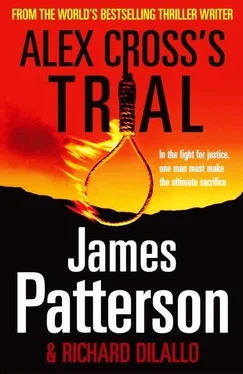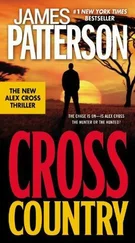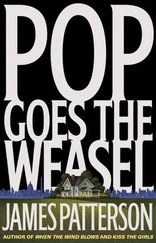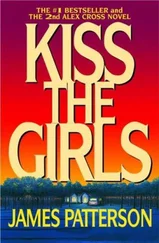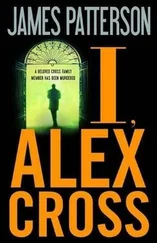It was time for me to meet this Mr. Cross.
I KNEW THE STREETS of the Quarters almost as well as I knew the rest of Eudora. I knew the history of how it came to be. After the war, the slaves from all the plantations and farms in the vicinity of Eudora had been freed. Most of them had either left their previous lodgings or been turned out by masters who no longer wanted to provide housing for people they didn’t own.
So the freed slaves built their homes where no one else wanted to live, in a swampy, muddy, mosquito-ridden low place half a mile north of the center of Eudora.
They gathered fallen logs from the woods and lumber from derelict barns to build their little houses. They laid boards across the swampy, pestilential ground to keep their children’s feet out of the mud. They stuffed rags and old newspapers in the chinks in the walls to keep out the wind in winter.
They ate squirrel and possum, poke sallet and dandelion greens. They ate weeds from the field, horse corn, the leftover parts of a pig, and whatever else they could get their hands on.
Walking along there now, as the neighborhood changed from poor white to poorer black, I saw a colored man sitting on the porch of a shack painted a gay shade of blue. He nodded at me.
I returned his nod. “Pardon me, do you know a man by the name of Cross? Abraham Cross?”
He never blinked. His eyes didn’t move from mine, but I had the feeling he was deciding whether or not I was worthy of the information I sought.
“Yes, suh,” he finally said. “If you just keep walkin’, you will come on a house with a strong smell of onions. That will be Abraham’s house.”
The sight of a white man walking on this street was not a welcome one for most of the people I came across. They kept their eyes down as they passed, which seemed to be customary now in Eudora but had not been the case when I was a boy.
Within minutes I caught the sharp tang of onions on the air. I saw thick patches of the familiar blue-green stalks in the yard of a small red house.
Suddenly, from the space between two houses, one little boy came running, followed by two more, and two more in pursuit.
“He gonna snatch you and eat you,” the lead boy shouted.
Then I saw what was chasing them – a wild pig, huge and hairy and grunting, bearing down on the boys with a pair of very bad-looking tusks.
“That ain’t the most beautiful animal in the world,” said a colored man standing on the porch of the red house.
I answered, “That is a face not even a mother could love.”
I looked closer. The man was taller than me, by at least three inches, and older, by at least fifty years.
“But she sure is beautiful when she’s angry,” he said.
We both laughed.
Then he said, “Begging your pardon, sir, but I get the idea you might be looking for someone.”
“Well, as a matter of fact, I am looking for a man. His name is Abraham Cross.”
“Yes, sir. You lookin’ at him.”
I must have appeared surprised.
“You was expectin’ some young fella, weren’t you, Mr. Corbett?”
“No, I– I really had no idea who to expect…”
“Well, sir, I confess I was expectin’ a young fella myself. So I guess at least one of us was right.”
MAYBE IT WAS because he looked like a picture of silver-haired wisdom. I just don’t know. But the truth is, I liked Abraham Cross from the moment I met him.
When he shook my hand, he grasped my shoulder with his other hand, so that I felt well and truly gripped.
“From this moment, Mr. Corbett–”
“Call me Ben,” I said.
“From this moment, Mr. Corbett,” he said pointedly, “I am happy to be of service to you as a guide and advisor. With luck, we may also become friends.”
I told him that I felt luck would be on our side.
He offered me a seat on his porch, which had a view of everyone passing along the boards from one end of the Quarters to the other. Abraham greeted everyone – man, woman, child – with a friendly wave and a personal word of greeting. I think if that hairy old boar had come back, Abraham would have waved and said howdy.
Abraham Cross had the way of a man at ease with himself. He wore dark woolen trousers, a neatly ironed white shirt, and a navy blue bowtie. I don’t know if he’d dressed up because he was expecting me or if he dressed this way every day.
On his head was a faded blue baseball cap with the initial P faded to near invisibility. I asked him what the P stood for.
“Pythians,” he said. “Does that mean anything to you?”
“Weren’t they athletes in ancient Delphi?” I said.
“Well, sir, I may be old but I ain’t as old as the Greeks in old Delphi,” he said, laughing.
Then he explained.
His greatest love in his young life, he told me, was baseball. After the War between the States he headed north, where a few Negro teams played.
“Notice I said they ‘played.’ I didn’t say they ‘flourished.’ Anyways, I made the team in Philadelphia. We was porters and butlers, iron men, lawn mower men during the week. On the weekends we played baseball.”
At Abraham’s nod, I followed him off his porch and toward the little “downtown” of the Quarters.
We were passing the colored general store, Hemple’s, where you could see the canned goods inside through gaps between the boards. By the front door stood a neat pyramid of beautiful peaches.
Abraham reached into his pocket for a couple of pennies, which he took inside to the old man at the cash box. He came back out and selected a nice fat peach from the side of the stack.
“Were you any good?” I asked the old man.
He smiled. He looked past me to a broom standing just inside the door. He asked me to hand it to him.
“You want to know if I was any good?”
He held the broom short, like a baseball bat. Then he tossed that beautiful peach into the air.
He swung.
He connected. Tasting a fine spatter of peach juice on my face, I watched it sail up and up, into the hot afternoon sky.
“Don’t bother to go lookin’ for that peach,” he said.
“I believe it is gone,” I agreed.
“In a minute or two it’s gonna be in Loosiana,” he said with a grin. “They always said tall, skinny boys like you and me can’t play baseball. They say we too far from the ground. I’ll tell you something, I proved they don’t know everything.”
He wiped the broom handle on his shirt and put the broom back inside.
We walked a few minutes in silence. Then Abraham stopped, his face suddenly serious.
“I could talk baseball and swing at soft peaches all day,” he said. “But you and I have some other business.”
“Yes, we do,” I said.
“This is serious business, Mr. Corbett. Sad business. My people are worse off now than they were the day Mr. Lincoln signed the Emancipation.”
“WE DON’T HAVE TO GO far to find a lynching tree,” Abraham said. “But I know how tired you young fellas get from walking in the heat of the day. I reckon we’d best take the hosses.”
The two “hosses” Abraham led out from a rickety blacksmith shop were mules – in fact, they were mules that had hauled one too many plows down one too many cotton rows. But those skinny animals proved their worth by depositing us, less than twenty minutes later, at a secluded swampy area that was unmistakably the site of a lynching.
Unmistakably.
A cool grotto tucked back in the woods away from the road. Big branches interlaced overhead to form a ceiling. The dirt was packed hard as a stone floor from the feet of all the people who had stood there watching the terrible spectacle.
Читать дальше
